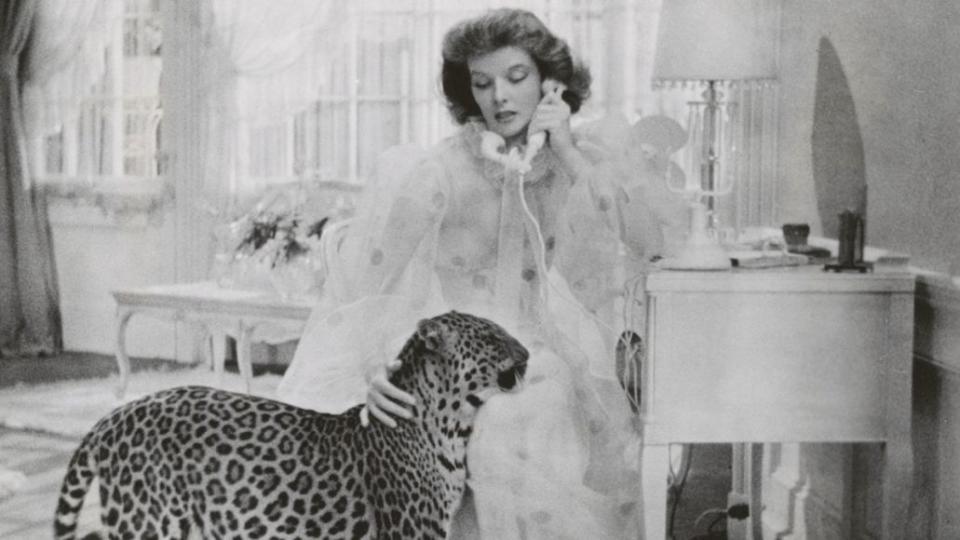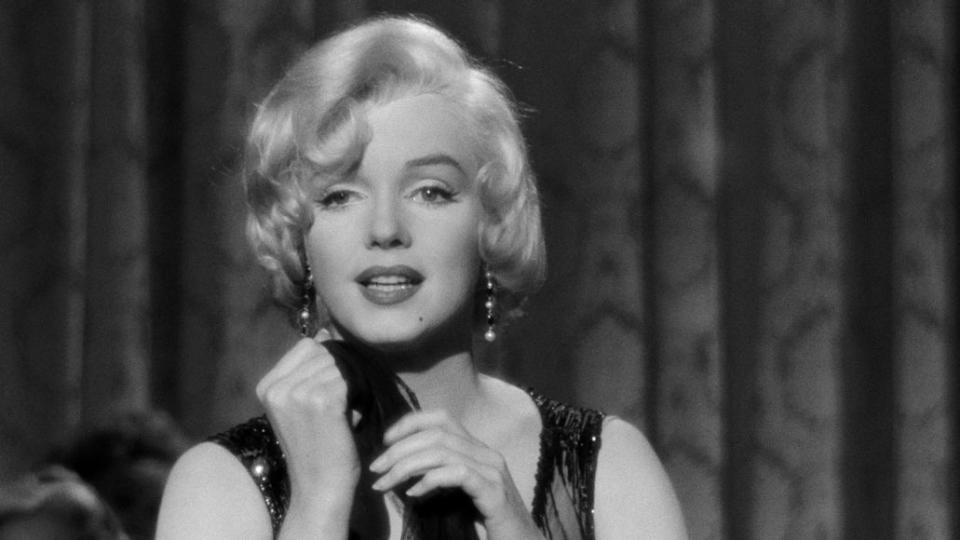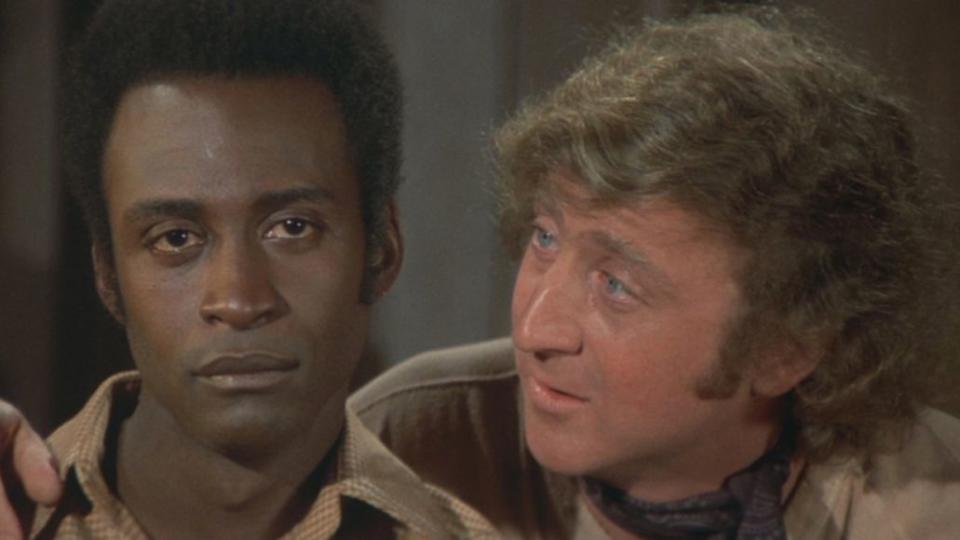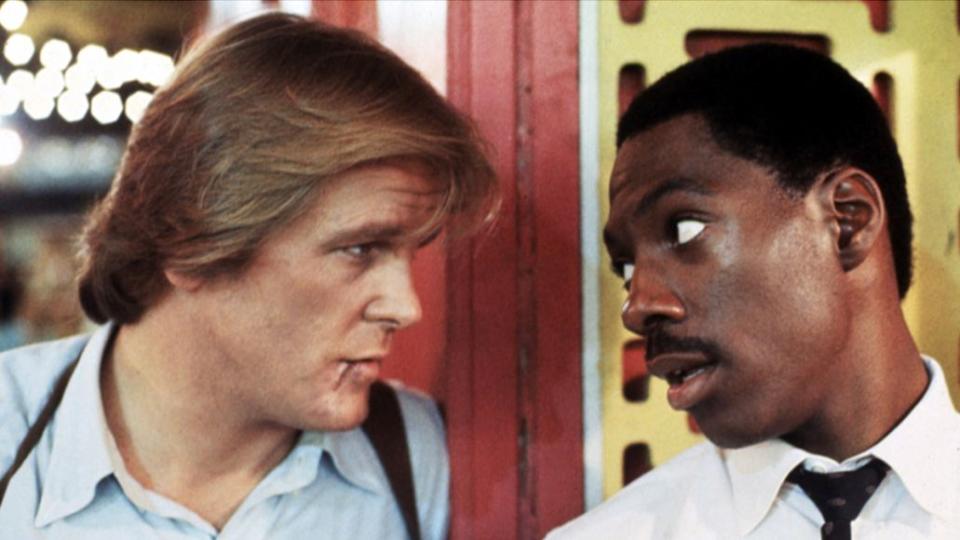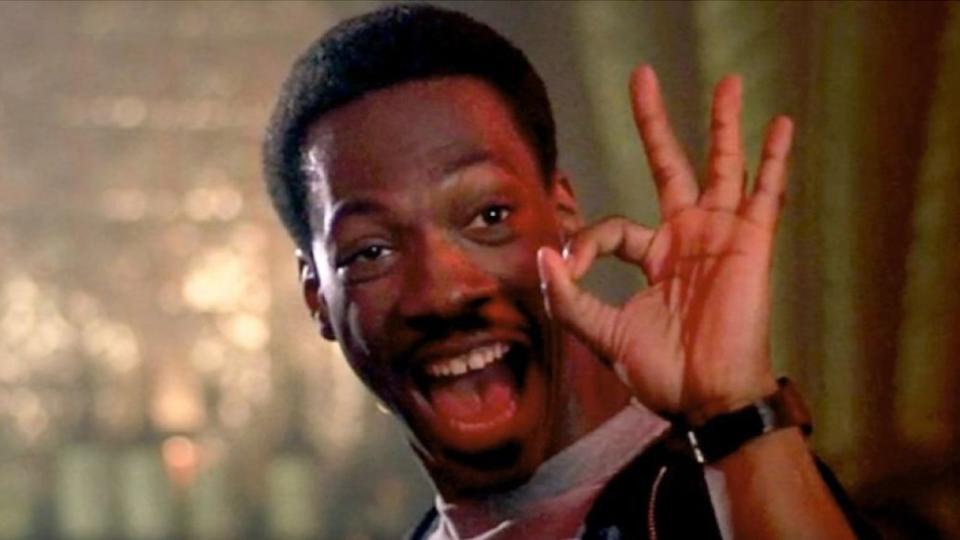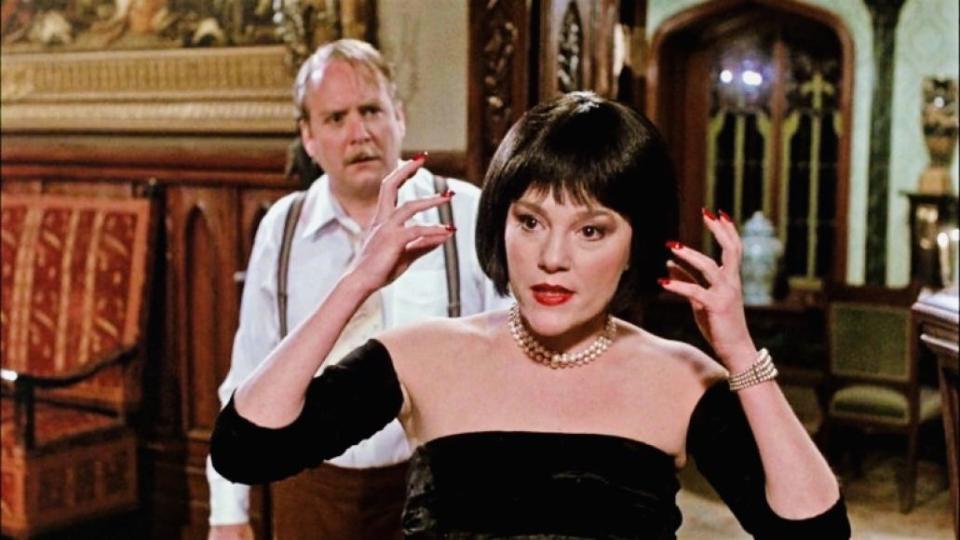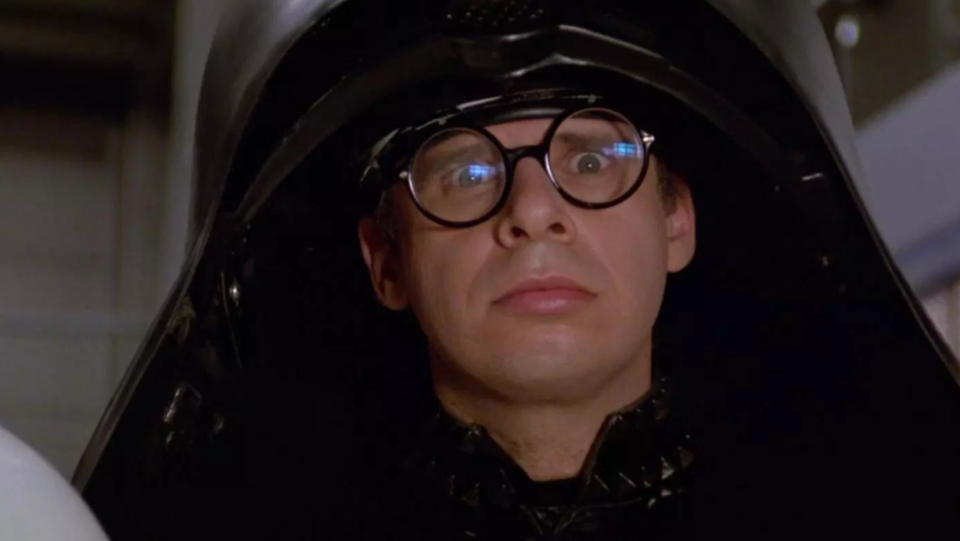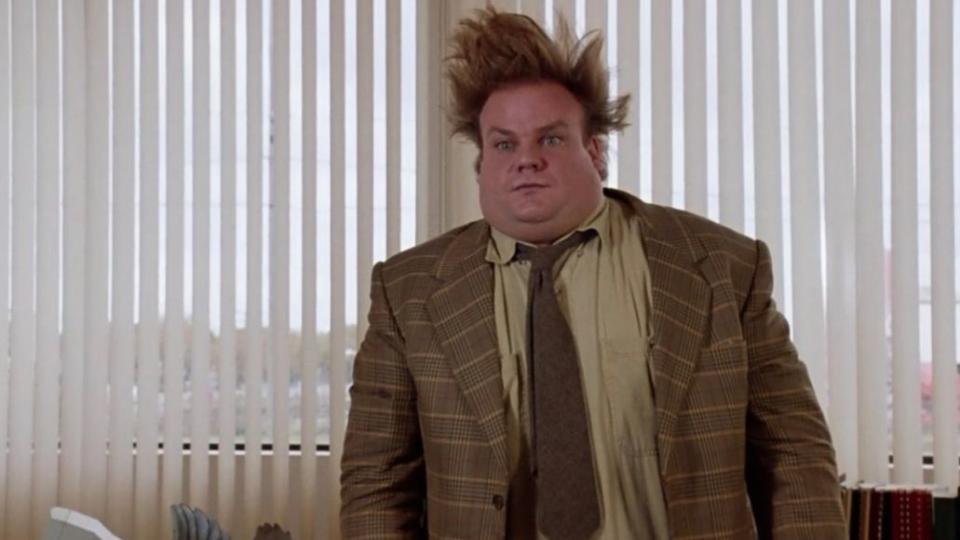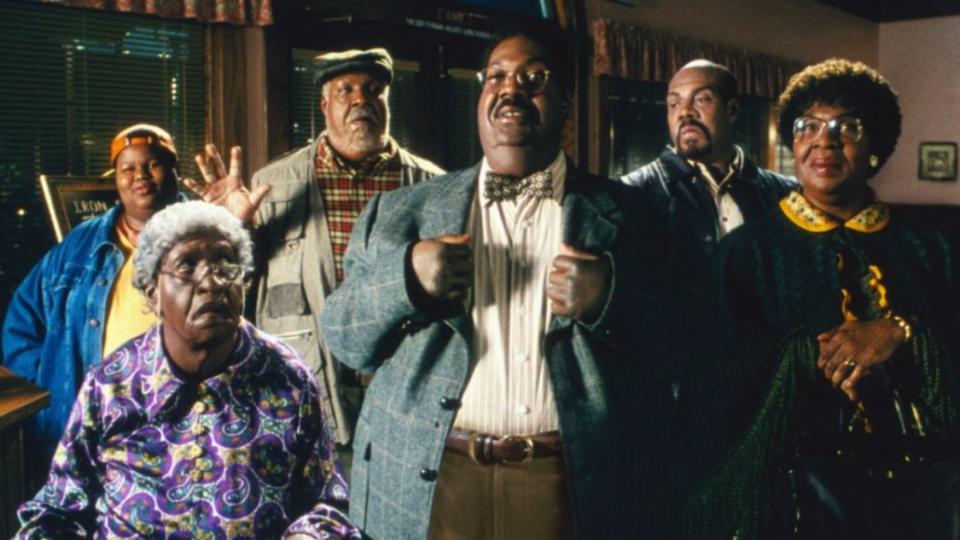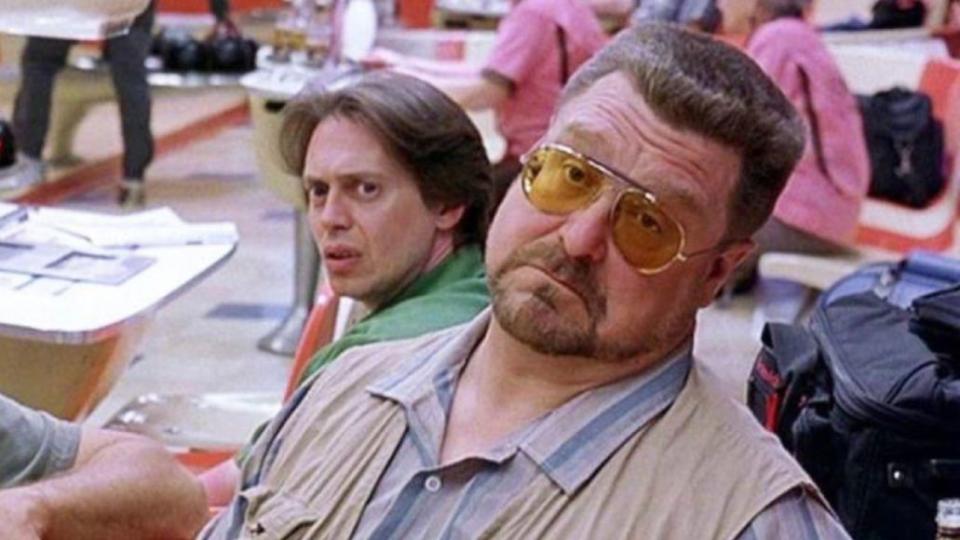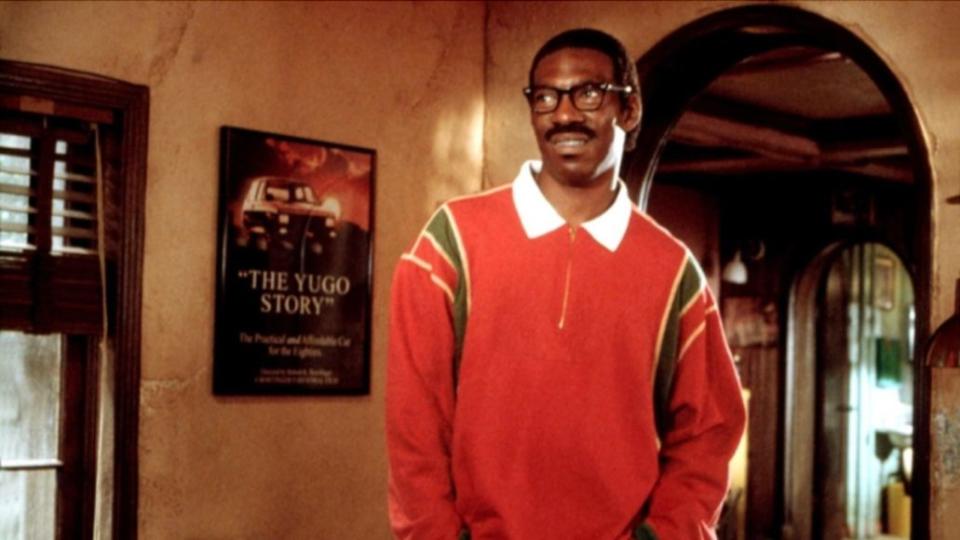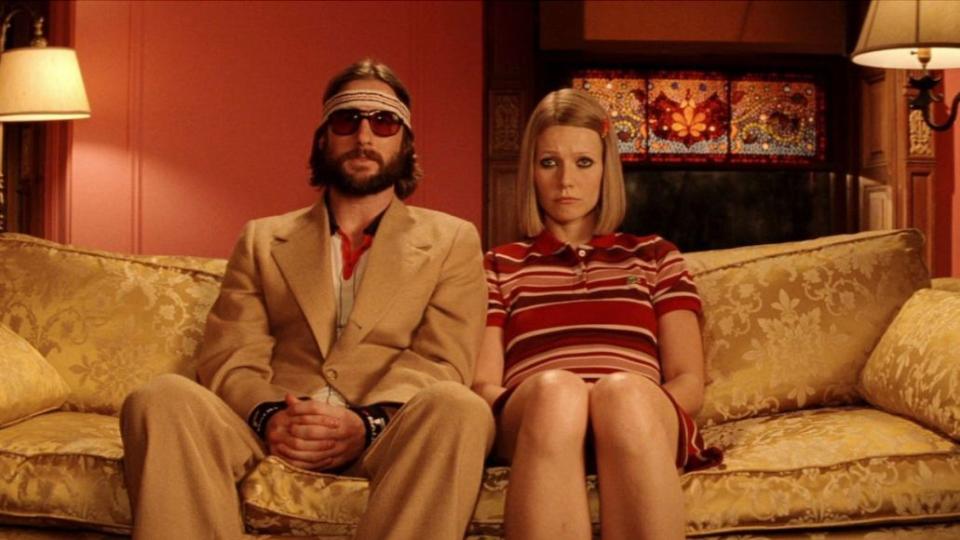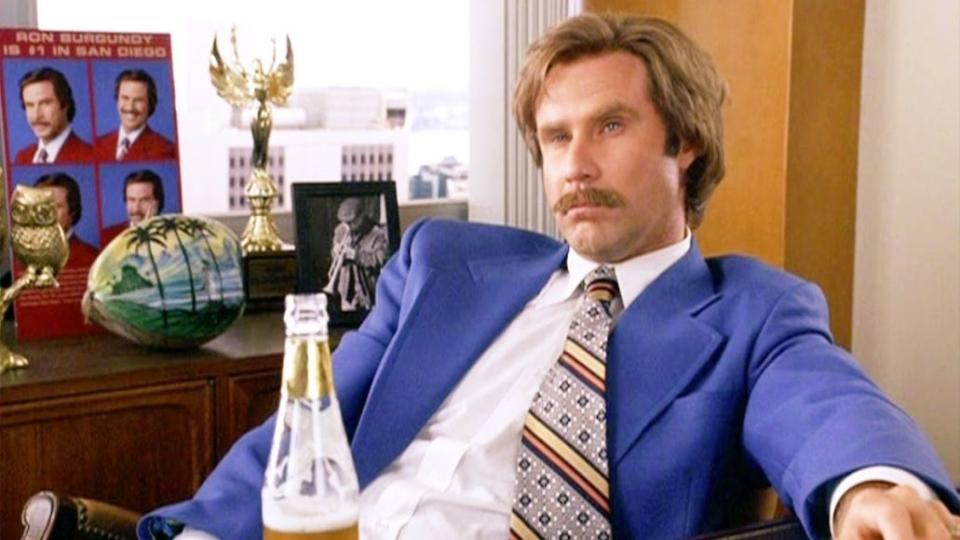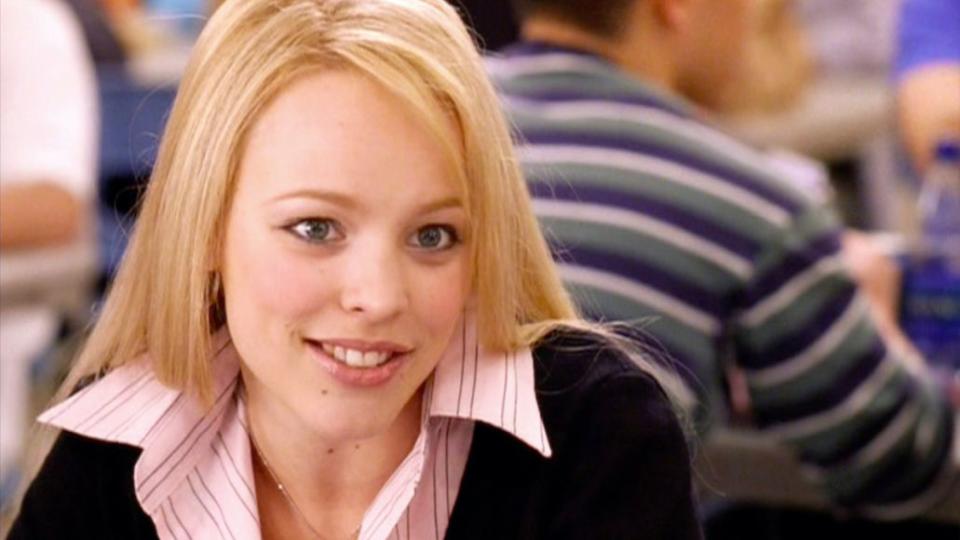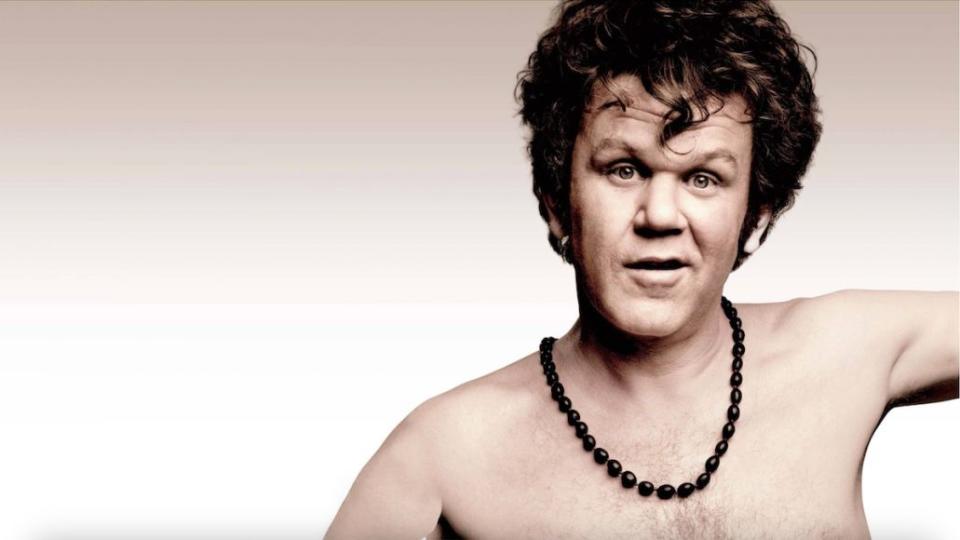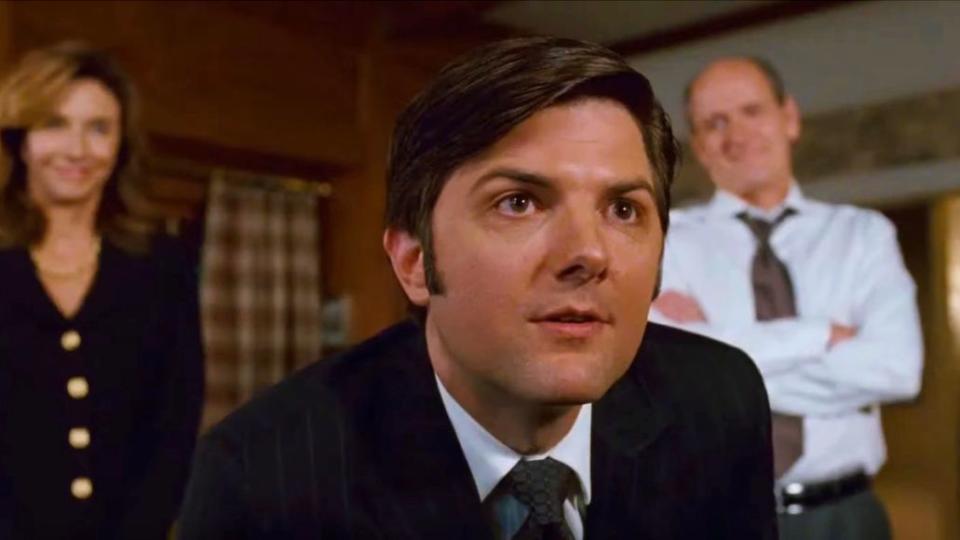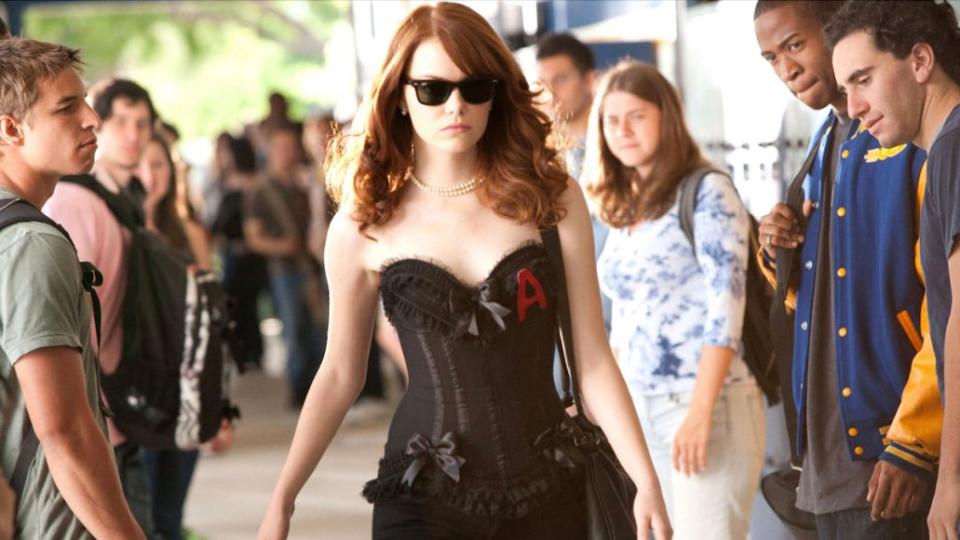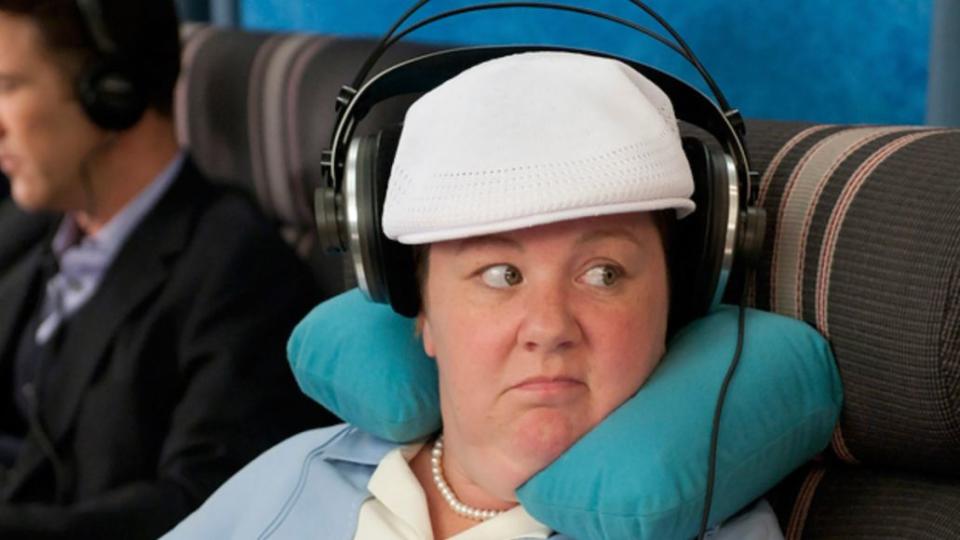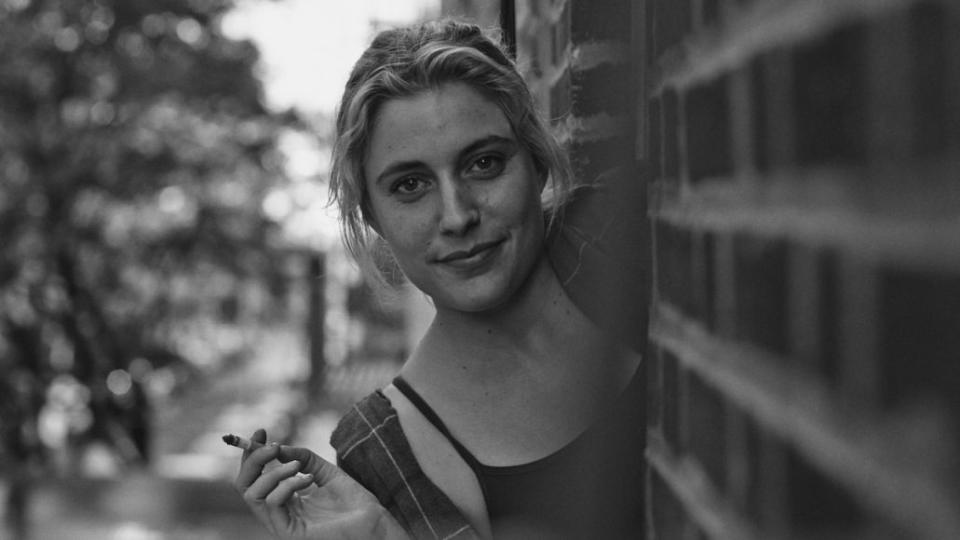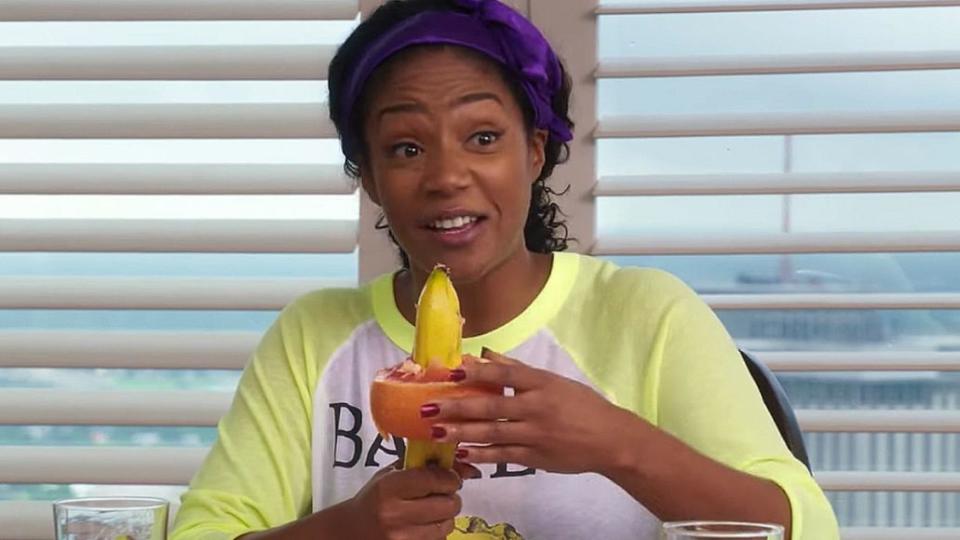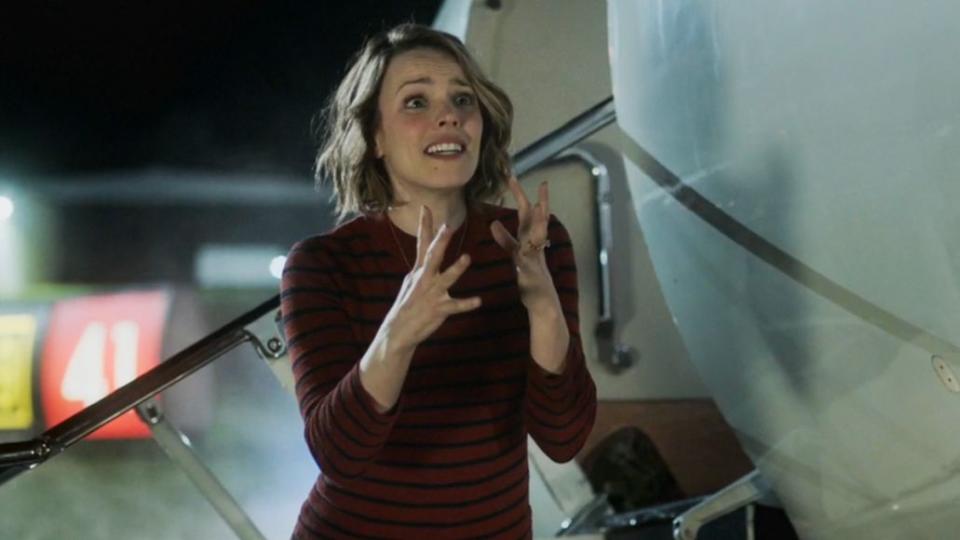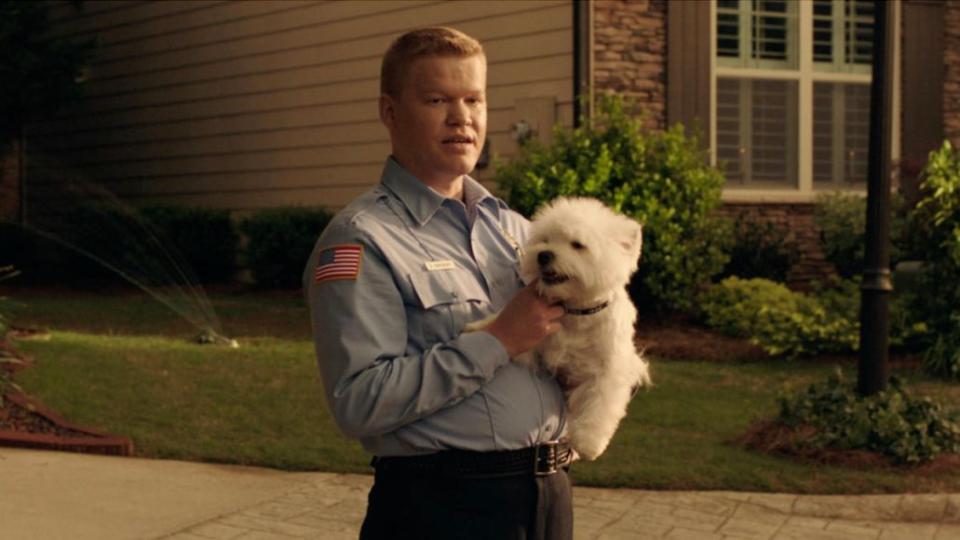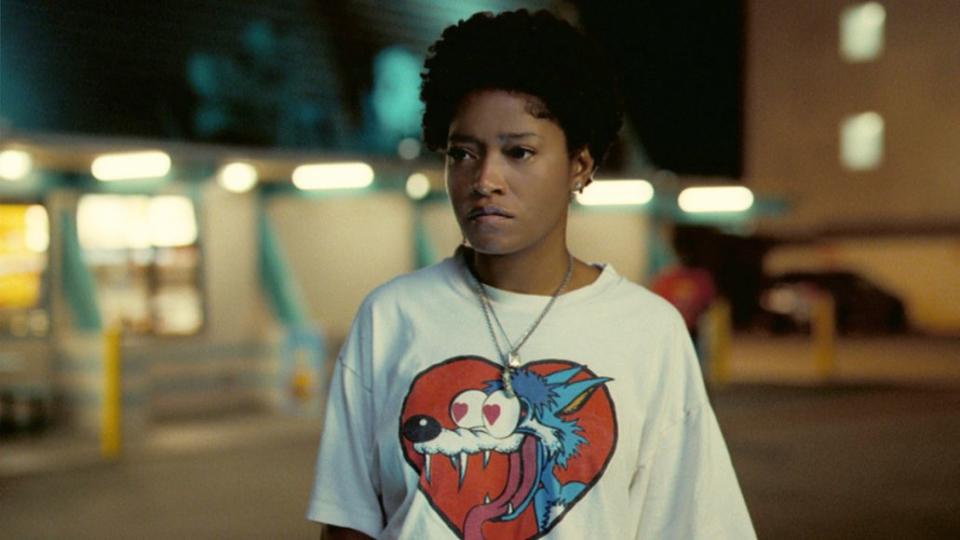Oscars Alternate History: What if the Academy Cared About Comedy?
- Oops!Something went wrong.Please try again later.
- Oops!Something went wrong.Please try again later.
- Oops!Something went wrong.Please try again later.
The post Oscars Alternate History: What if the Academy Cared About Comedy? appeared first on Consequence.
“Dying is easy. Comedy is hard.” Some version of that axiom has served as a coat of armor for actors from Edmund Gwenn through Jack Lemmon, and it’s not difficult to see why. During the big scene where you croak, it might be hard to tell if the audience is stifling tears or yawns. But if all your jokes are met with silence, well, you might yearn for your actual demise. So if actors recognize that comedy is at least as challenging as drama, why don’t the Oscars?
Consequence recently endeavored to rank every Oscars Best Picture winner, and if you scroll through the list you’ll see drama after drama, especially those set in wartime. It’s as if the Academy of Motion Picture Arts and Sciences sees blowing each other up as the only noteworthy human activity.
The Oscars haven’t entirely ignored comedy, though they have tended to take their sugar with a spoonful of medicine. A partial list includes the 1960 comedy-drama The Apartment winning Best Picture, Alan Arkin taking the trophy for his performance in Little Miss Sunshine (his character died), the romantic Moonstruck winning a screenplay award, and Barbara Streisand being honored for her work in the bittersweet musical Funny Girl. When it comes to lighter comedy, the pickings are slimmer yet, though exceptions were made for the likes of Marissa Tomei in My Cousin Vinny, Jack Palance in City Slickers, and Some Like It Hot for just about everyone except Marilyn Monroe.
As time goes on, there’s been a noticeable decline in comedy honors across the five big categories of Best Picture, Best Actor and Actress, and the two Best Supportings. But what would happen if the Academy cared about comedy? And not just the dark comedies and dramedies — the really silly stuff, too. How would the awards have been different?
In that same spirit of silliness, we present great moments from an alternate history of the Oscars. The field was open to deserving candidates throughout the Academy’s run, but we have found more misses in recent decades, as the awards have grown increasingly humorless. And finally, we have not unduly stressed about taking away awards from the real, usually very-deserving winners. Maybe this alternate universe doles out more than one trophy. The Academy Awards are already a made-up accomplishment, and our list just happens to be a little more made-up than usual.
— Wren Graves
Features Editor
Katherine Hepburn Wins Best Actress for Bringing Up Baby (1935)
Bringing Up Baby (RKO Radio Pictures)
Let’s look all the way back to 1938, where Katherine Hepburn went toe to toe with Cary Grant in Bringing Up Baby. The chemistry between the two stars is electric — the story infamously goes that production was even delayed because Grant and Hepburn couldn’t stop laughing during takes — and the film checks off many comedic boxes, from witty dialogue to physical comedy. The script was written for and tailored specifically to Hepburn, but she didn’t secure a nomination for her performance as Susan Vance — and, in fact, Bringing Up Baby didn’t secure any nominations from the Academy at all. Yes, the Oscars were still finding their footing in many ways back in the 1930s, but it feels like a glaring mistake. — Mary Siroky
Marilyn Monroe Wins Best Actress for Some Like It Hot (1959)
Some Like It Hot (United Artists)
When discussing the story of Marilyn Monroe, there’s rarely enough of an emphasis on just how talented she was as a comedic actress. Some Like It Hot is rightfully considered a classic, and it’s hard to believe it would have had such longevity without Monroe. She’s simply luminous onscreen as Sugar Cane, and instantly memorable from her delivery in her introductory scene alone: “I don’t want you to think I’m a drinker. I can stop any time I want to – only I don’t want to.” — M.S.
Cleavon Little Wins Best Actor for Blazing Saddles (1974)
Blazing Saddles (Warner Bros.)
Maybe they’re right: you couldn’t make Blazing Saddles today. But, really, that’s because it’ll be damn near impossible to find anyone who is half as funny as Cleavon Little. Little’s Sheriff Bart, a standout performance in a movie overflowing with classic comedic performances, comes across like a live-action Bugs Bunny. He’s always three steps ahead, pulling off his convoluted plans with a wink to the camera. In the hands of a less capable actor, it could have very easily been overly cartoonish, even annoying. Yet, Little’s charisma and willingness to fully commit to the bit allowed him to transcend the absurd nature of his antics, and it’s a major reason Blazing Saddles still elicits so many laughs. — Jonah Krueger
Eddie Murphy Wins Best Actor for 48 Hrs (1982)
48 Hrs (Paramount Pictures)
For Katherine Hepburn it was 1933’s Morning Glory, for Meryl Streep it was 1979’s Kramer vs. Kramer, and in our alternate history the Academy first recognized a new generational talent when a 21-year-old Murphy starred in 48 Hrs. The comic prodigy had revitalized Saturday Night Live as a teenager, and his first film established him as a silver screen star.
This buddy-cop action comedy has more dramatic moments than many of the entries on this list, with Murphy as a convicted criminal freed for two days to help solve a crime. Whether bantering with Nick Nolte, attempting a romance, or shaking down a redneck bar plastered with Confederate flags, Murphy is never less than charming, dropping punches and punchlines with equal ease. — W.G.
Eddie Murphy Wins Best Actor for Beverly Hills Cop (1984)
Beverly Hills Cop (Paramount Pictures)
Get ready for a lot of Murphy, a man who did for buddy cops what De Niro did for gangsters. In the first installment of Beverly Hills Cop he deserves an award just for the scene following getting thrown out of a window: The physicality on the ground, the way he cups his hands against the broken glass, his disbelief at getting arrested, and the way he says, “This is the cleanest and nicest police car I’ve ever been in in my life,” all show a perfectionist’s attention to detail and an improviser’s capacity to surprise. — W.G.
Madeline Khan Wins Best Supporting Actress for Clue (1985)
Clue (Paramount Pictures)
Each member of Clue’s ensemble is operating at the highest comedic level, but perhaps no role is as memorable or hilarious as Madeline Khan’s portrayal of Mrs. White. Khan centers her Mrs. White with tension first and foremost, eventually bubbling up and exploding outwards. The peak of her performance arrives in the film’s multiple endings, with one conclusion outing her as the murderer, to which she responds with her legendary (and hysterical), “There were flames… on the side of my face…” monologue. This standout performance — and the film as a whole — deserved a little more than its cult classic stamp. — Paolo Ragusa
Broadcast News and/or Spaceballs (1987) Wins Best Picture
Spaceballs (MGM)
At the 60th Oscars ceremony, there were actually two comedies nominated for Best Picture, and while Moonstruck picked up some well-deserved acting recognition for Cher and Olympia Dukakis, Broadcast News failed to win any of its seven nominations. This, frankly, is a travesty, especially given the winning Best Picture that year was The Last Emperor, a beautifully made but dramatically uninspiring film, the lasting legacy of which is largely just film trivia. (Did you know that David Byrne contributed to the score? And won an Oscar for it?)
Meanwhile, Broadcast News is a triumph for Albert Brooks across all categories, funny and moving and passionate, while also offering some necessary and incisive criticism of the media. Of the films nominated that year, only Fatal Attraction has had a larger impact on our culture.
There’s also another Brooks to consider in 1987: Spaceballs might not be your favorite Mel Brooks movie (unless you happened to be born in the 1980s, already a huge fan of Star Wars prior to the film’s release, and prone to crushes on Bill Pullman). But the comedy legend has always deserved more recognition from the Academy than he’s gotten over the years, and looking back at Brooks’ films, this was a weak enough year that it’s not impossible to imagine Spaceballs breaking through with at least a nomination. — Liz Shannon Miller
Chris Farley Wins Best Actor for Tommy Boy (1995)
Tommy Boy (Paramount Pictures)
Sometimes, the best way to get a laugh is to let the joke do the work, to stay reserved, and like Leslie Nielsen in Airplane!, look the audience dead in the eye and dare them to break first. Other times, fuck all that. Get silly, loud, and take those laughs one way or another. When it comes to actors who embody the latter, Chris Farley might have been the crown prince, with Tommy Boy standing as his comedic masterpiece. Is it the most complex performance ever put on the silver screen? No, but Farley’s Tommy Callahan, for all of his absurdities, is just as believable and compelling as a character from any self-serious 1990s drama. Farley’s physicality and child-like wonder are unmatched and totally unique. – J.K.
Waiting for Guffman (1996) Wins Best Picture
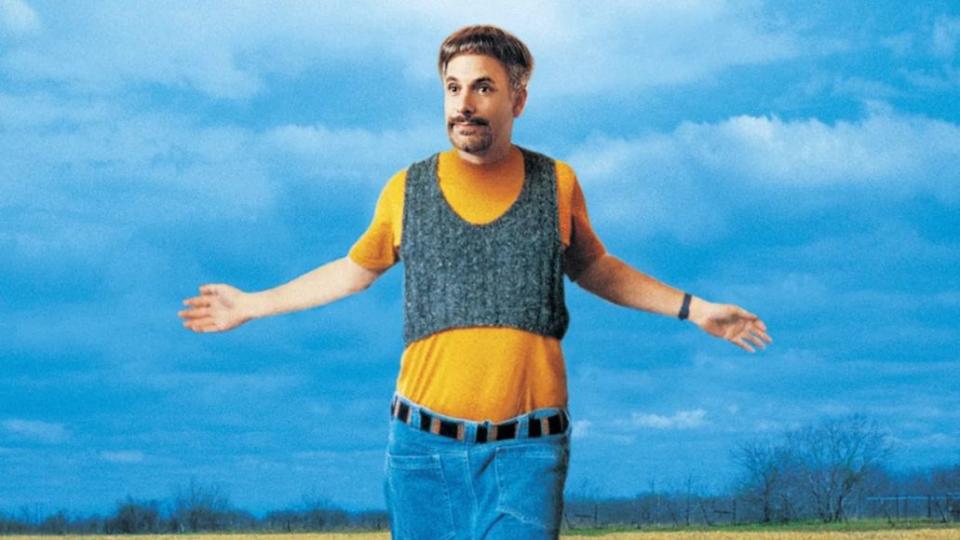
Waiting for Guffman (Sony Pictures Classics)
The English Patient was the first Best Picture win for Harvey Weinstein’s Miramax, but while the sweeping romance of Anthony Minghella’s World War II drama made an impact in its year, it hasn’t had the same staying power as Christopher Guest’s stellar comedy. His third film as director, Waiting for Guffman represents Guest perfecting the mockumentary format (previously used for projects like Spinal Tap) for a story about a small-town community theater troupe with big dreams. Guest would go on to implement this improvisational approach for future films, but right out of the gate Guffman was a game-changer for the industry, and also a nuanced look at what it means to have big artistic dreams. It might not have looked like the most important film of its year, but Corky St. Clair deserves his flowers. — L.S.M.
Eddie Murphy Wins Best Actor for The Nutty Professor (1997)
The Nutty Professor (Universal Pictures)
The title could easily describe Murphy and his bonkers film masterclass. The sheer variety of characters he seats around the Klump’s dinner table might have powered a whole season of SNL, and that doesn’t even account for the biggest transformation of all. The Nutty Professor is a madcap Dr. Jekyll and Mr. Hyde, and as mild-mannered Sherman loses himself to alter-ego Buddy Love, Murphy snaps back and forth between them at ferocious speed. Rarely has a performer looked like they were having this much fun. –W.G.
John Goodman Wins Best Supporting Actor for The Big Lebowski (1998)
The Big Lebowski (Gramercy Pictures)
The fact that American hero John Goodman has yet to receive a single Oscar nomination throughout his four-decade film career is a travesty. Goodman’s resume is strong, especially when you consider his numerous memorable roles in Coen Brothers films like Barton Fink, Raising Arizona, O Brother, Where Art Thou?, and Inside Llewyn Davis, not to mention performances in Best Picture-winners Argo and The Artist. But towering above all those colorful characters is Walter Sobchak, the paranoid Vietnam veteran-cum-philosopher king who happens to be The Dude’s best friend. Sure, Jeff Bridges leads the Coen Brothers’ hallucinatory epic as the titular hero, but like a rug that really ties the room together, Goodman’s Walter is The Big Lebowski’s true anchor. That Goodman fleshes out Walter with distinct idiosyncrasies and mannerisms, rather than simply playing him as a caricature for comedic relief, lends the performance gravitas. Is Walter Sobchak larger than life, an all-time cinematic character who toes the line between drop-dead sincerity and farce? Sure. But Goodman imbues Walter with shades of reality, creating a character that offers added nuance and fresh laughs with every repeat viewing. — Spencer Dukoff
Eddie Murphy Wins Best Actor for Bowfinger (2000)
Bowfinger (Universal Pictures)
One of the great Steve Martin scripts saw Murphy playing two brothers, one of whom did not know he was acting in a movie. Action star Kit is neurotic and paranoid, while his sweet, simple brother Jiff is Bowfinger’s beating heart. Martin as Bobby Bowfinger interacts with both, developing different chemistries and rhythms as if they really were two separate actors.
In this alternate history it’s easy to give Murphy multiple wins, but even in our current timeline, his talent deserves to be mentioned in the same breath as all-time Oscar standouts like Katherine Hepburn and Meryl Streep. He’s a transformational talent with near-infinite range, and as his filmography ages like fine wine, he does not need a trophy case for validation. –W.G.
The Royal Tenenbaums (2001) Wins Best Picture
The Royal Tenenbaums (Buena Vista Pictures Distribution)
In the decades since the release of The Royal Tenenbaums, the Academy has proven to be a bit more gracious to Wes Anderson than they were in his early days as a filmmaker: He’s since been nominated repeatedly (though never won) for his animated films as well as 2014’s The Grand Budapest Hotel. But right out of the gate, Anderson proved himself to be an exciting filmmaker, and his third film might still be his very best. Voters for the 74th Oscars, however, barely acknowledged the story of a New York family crumbling apart, despite stellar performances from its cast (many of whom were past Oscar winners!). Instead, Anderson and co-writer Owen Wilson were only able to eke out a Best Original Screenplay nomination. Perhaps voters just weren’t ready, and so that’s why the damn Russell-Crowe-does-math movie ended up becoming that year’s big winner. Pardon the sarcasm, but yeah, that’s definitely as iconic as Gwyneth Paltrow getting off the bus while Nico plays. Definitely. — L.S.M.
Will Ferrell Wins Best Actor for Anchorman: The Legend of Ron Burgundy (2004)
Anchorman: The Legend of Ron Burgundy (DreamWorks Pictures)
It took Adam McKay giving up his penchant for farce for the Academy to notice him – and it’s a shame. Frankly, his collaborations with Will Ferrell are just as enjoyable and likely more iconic than his recent, more acclaimed work. And the crème de la crème of the McKay-Ferrell connection was, of course, Anchorman: The Legend of Ron Burgundy, where Ferrell gave what was perhaps his defining performance as Ron Burgundy (Buddy the elf notwithstanding). From the mustache to the exaggerated voice to the ’70s machismo, Ferrell’s Burgundy remains one of the most recognizable characters in comedy for a reason. For a year where the Best Actor category was so populated with deathly serious roles (Hotel Rwanda, Ray, Million Dollar Baby), could not the Oscars have used a little levity? – J.K.
Rachel McAdams Wins Best Supporting Actress for Mean Girls (2004)
Mean Girls (Paramount Pictures)
For the Queen Bee of North Shore High and the primary “mean girl” of the film, Regina George is surprisingly complex. So, not just any actress would have been able to do her justice — but Rachel McAdams, with her charged demeanor and incredible command of language, made Regina into a lasting icon. She added so many dynamic details to the character’s moment-to-moment life, from the way she plays with status in her relationships to simple throwaway lines like, “Get in loser, we’re going shopping.” It’s a powerhouse supporting performance in a comedy film that certainly has more to say than its 2004 contemporaries, and an unforgettable showcase for McAdams.
Bonus nom: Amy Poehler, who plays Regina George’s incautious mother, is only in a few scenes, but it’s an unforgettable performance. She’s got some great jokes, sure, but she completely inhabits this character with undeniable conviction. — P.R.
John C. Reilly Wins Best Actor for Walk Hard: The Dewey Cox Story (2007)
Walk Hard: The Dewey Cox Story (Sony Pictures Releasing)
John C. Reilly has more than proven himself as a dramatic actor, even nabbing an Oscar nomination for 2002’s Chicago. But it wouldn’t be hard to argue that much of Reilly’s best work comes when he takes on the type of role the Academy likes to pretend doesn’t exist – that of the goofy comedic lead. Perhaps no film shows off his comedic chops like Walk Hard: The Dewey Cox Story, a spoof on music biopics that we’re still not fully convinced the writers of Bohemian Rhapsody didn’t adapt for their script. Like many of the actors on this list, it’s hard to imagine anyone other than Reilly taking on Dewey Cox, as he manages to sell both the silly moments and the more emotional beats. So, here’s to a petition for a new satirical biopic that tells the story of Reilly’s snub; maybe that’ll finally get the Academy’s attention. – J.K.
Adam Scott Wins Best Supporting Actor for Step Brothers (2008)
Step Brothers (Sony Pictures Releasing)
For such a seemingly nice, well-adjusted guy, Adam Scott is scary good at playing the dickhead. You can better understand the dynamic between Will Ferrell’s Brennan and John C. Reilly’s Dale — two adult step brothers-to-be — only once you dig into the dynamic between Brennan and his younger brother, Derek. Scott is so relentlessly face-punchable, from his “Ice, Ice Baby” lip-sync to his rise-and-grind passion for the Catalina Wine Mixer, that it no-doubt inspired legions of arrogant psychopaths who can sing high on a cappella renditions of “Sweet Child O’ Mine.” — S.D.
Emma Stone Wins Best Actress for Easy A (2010)
Easy A (Sony Pictures Releasing)
Emma Stone burst onto the scene in Superbad and has thankfully remained a steady and reliable presence in our lives in the years since. Stone has so many wonderful comedic performances, and she almost always brings a note of humor to any role she’s in, but Easy A was the star vehicle that pushed the actress to the next level. If nothing else, a nomination for her performance as Olive would have been lovely and deserved, and the film has also held up quite well — the “Pocketful of Sunshine” sequence remains nothing less than iconic. Yes, Stone has had plenty of chances at Oscar gold since, and notably took the trophy home for La La Land, but we aren’t going to let this performance go so easily. — M.S.
Melissa McCarthy Wins Best Supporting Actress for Bridesmaids (2011)
Bridesmaids (Universal Pictures)
Perhaps the most high profile nod to a stellar comedic performance in recent years went to Melissa McCarthy in Bridesmaids, who was nominated for Best Supporting Actress at the 2012 Academy Awards. For a performance so brash, absurd, and physically commanding, McCarthy’s nomination wasn’t just earned — it was a terrific example of an actor tapping into an irresistibly funny place. Even more significant is the fact that this was McCarthy’s first major film role, and it was so sensational that she became a household name overnight. — P.R.
Greta Gerwig Wins Best Actress for Frances Ha (2012)
Frances Ha (IFC Films)
Greta Gerwig is now known as the brilliant writer and director who has delivered us gems like Lady Bird and Little Women, making it all the more interesting to remember the era where she was indie’s “it girl” actress. Gerwig gave many great performances early in her onscreen career — try not to laugh out loud at some of her line readings in Mistress America — and Frances Ha is arguably her best. Frances is painfully relatable, messy, and frustrating, as sympathetic as she is funny thanks to the grounded presence Gerwig provides. The image of Frances sprinting and dancing down the street, shot in black and white, feels like something the Oscars should have loved regardless of the film’s genre. — M.S.
Taika Waititi Win Best Actor for What We Do in the Shadows (2014)
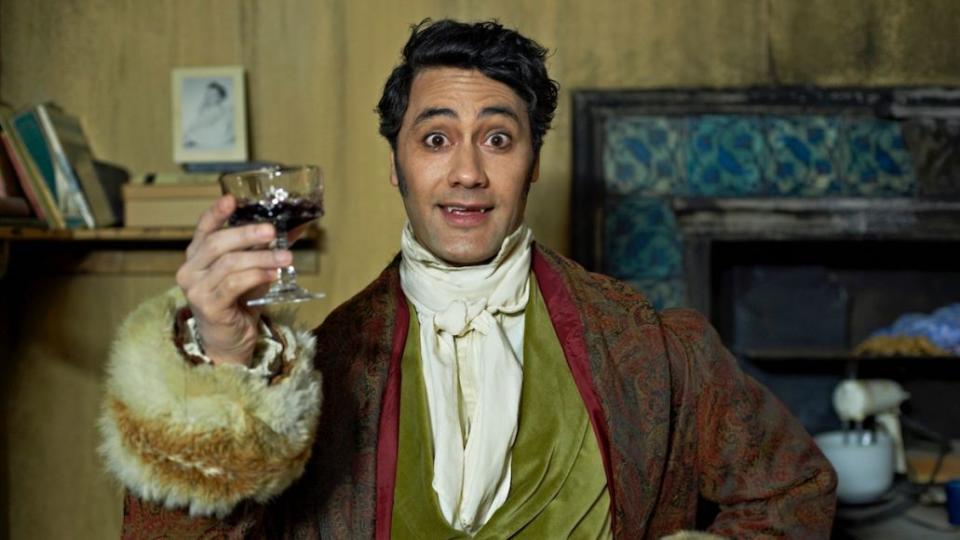
What We Do in the Shadows (Unison/Paladin)
Before it was adapted into a beloved television series, What We Do in the Shadows was a cult-favorite low-budget film. As Viago, Waititi turns in one of the signature performances of his career. Mash up the determined deadpan of Christopher Guest with the delightful silliness of Flight of the Conchords (Jemaine Clement co-stars), and you get this gem, which would introduce Waititi as one of this generation’s comedic geniuses. — S.D.
Andy Samberg Wins Best Actor for Popstar: Never Stop Never Stopping (2016)
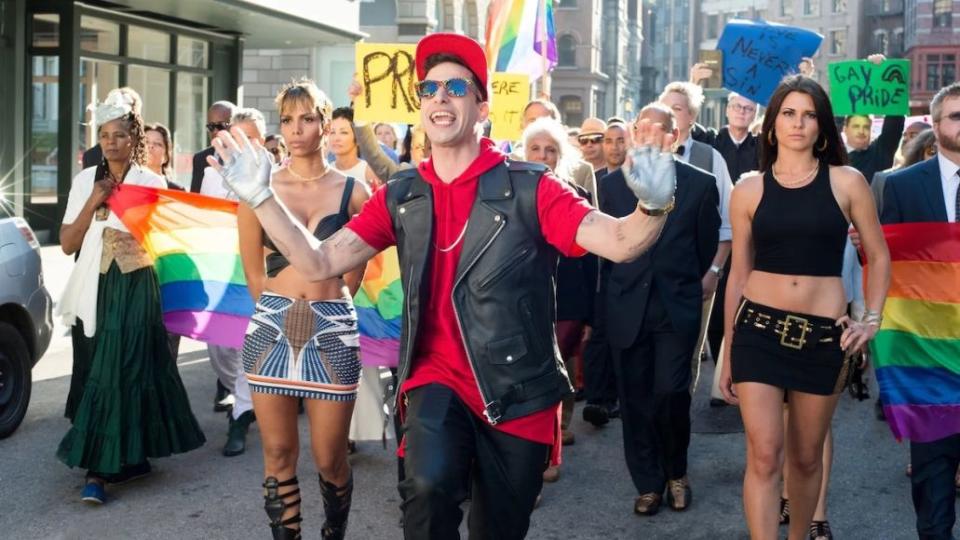
Popstar: Never Stop Never Stopping (Universal Pictures)
Just about every aspect of Popstar: Never Stop Never Stopping was underappreciated. The songs slapped, the screenplay was clever, and the acting was absolutely top notch. Of those performances, Andy Samberg’s Conner Friel stands out as one that could have inspired endless Halloween costumes and reaction gifs. Samberg brought out both the best and worst of Conner, hamming up his ego while leaving the door open just enough to get a peek at his deep insecurities. And yet, we live in an unjust world; the film flopped at the box office, the Academy ignored it, and if you show up to a costume party as Conner Friel, you’ll spend the whole night explaining your outfit. – J.K.
Alden Ehrenreich Wins Best Supporting Actor for Hail, Caesar (2016)
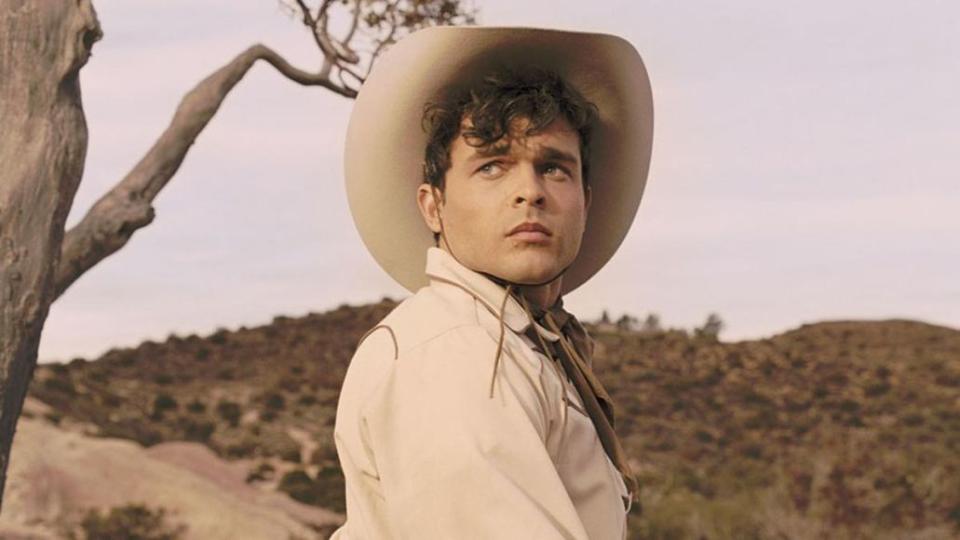
Hail, Caesar! (Universal Pictures)
The Coen Brothers’ underrated 2016 black comedy Hail, Caesar! features no shortage of memorable performances, from George Clooney to Channing Tatum to Scarlett Johansson. But Alden Ehrenreich stands out at Hobie Doyle, who is hilariously miscast as a dramatic lead after making his career in Hollywood as a singing cowboy. With so much craziness happening all around him, Ehrenreich anchors the audience to a slice of sanity. Oscar voters love when actors pull out all the stops for a performance — why not honor Ehrenreich for horseback riding, gun tricks, lassoing, and guitar? — S.D.
Tiffany Haddish for Best Supporting Actress in Girls Trip (2017)
Girls Trip (Universal Pictures)
Arguably Tiffany Haddish’s breakout role, her turn as Dina in Girls Trip is the definition of a scene-stealing performance. Amidst co-stars of some serious stature (Queen Latifa, Regina Hall, and Jada Pinkett Smith), Haddish’s unabashed confidence and incredible commitment led to her standing out the brightest. There are rare moments where someone’s essence is highlighted perfectly on film as it is here, and throughout all the tremendous physical comedy and memorable jokes, Haddish showed the world exactly what she is capable of. — P.R
Rachel McAdams Wins Best Actress for Game Night (2018)
Game Night (Warner Bros. Pictures)
In this truly underrated 2018 comedy, Rachel McAdams gives an inspired lead performance. McAdams having the range to flex comedy chops alongside her dramatic abilities isn’t news — The Notebook and Mean Girls came out in the same year, after all — but Game Night appeared at a point where we hadn’t seen this kind of work from her in a while. Even if that hadn’t been the case, it’s hard to deny just how good she is as the core of Game Night with a performance that requires the focus and nuance that’s so much more easily rewarded in dramatic roles. It’s not her fault she makes something so difficult look so easy! — M.S.
Jesse Plemons Wins Best Supporting Actor for Game Night (2018)
Game Night (Warner Bros. Pictures)
“Here’s looking at you, kid.” “I’m gonna make him an offer he can’t refuse.” “How can that be profitable for Frito-Lay?” All three quotes belong in the pantheon of cinema history, with the latter being delivered by Jesse Plemons’ scene-stealing role as Gary in Game Night. It’s just one of many iconic lines delivered by Plemons, whose understated and relentlessly deadpan turn as an awkward police officer following a divorce deserved more recognition from the Hollywood intelligentsia. — S.D.
Keke Palmer Wins Best Actress in NOPE (2022)
NOPE (Universal Pictures)
Keke Palmer feels tailor-made for a Jordan Peele movie: She’s a natural when it comes to his balance of high-stakes horror and genuine moments of comedy, and no one could have tackled the role of Emerald in 2022’s NOPE the way she did. There’s a reason Palmer is so beloved on the Internet, and a lot of it has to do with her contagious energy. Watching Palmer sometimes feels like talking to your best friend, and her quirky, off-kilter performance in this film in particular provided the perfect balance to Daniel Kaluuya’s levelheaded OJ. Some sequences, like her comment to another shopper in the electronics store, feel unscripted. Her joyful high-five with Kaluuya on the porch of the family house is one of the most memorable film moments of its year. The fact that by the end of the movie, she’s won the viewer’s hearts in the emotional sequences, too, is icing on the cake and a testament to her skill set. — M.S.
Oscars Alternate History: What if the Academy Cared About Comedy?
Consequence Staff
Popular Posts
Violent Femmes Announce Tour Dates Celebrating 40th Anniversary of Debut Album
Selective Outrage Review: Chris Rock Settles Old Scores as Netflix Breaks New Ground
Feuding Journey Members Hire Off-Duty Police Officers to Guard Dressing Rooms
Lionel Richie Announces North American Tour with Earth Wind & Fire
